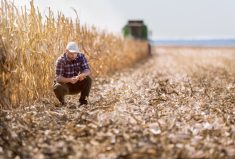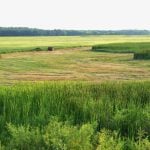A family-owned farm within the City of Welland is fighting back after it was threatened with a third round of expropriation.
This time, the entire farm could be taken, after two portions were lost to railways in the last century.
Why it matters: All three general farm organizations in Ontario have identified the loss of farmland as a continuing high priority. The Ontario Federation of Agriculture (OFA) released a new update to its Consolidated Agricultural Land Use Policy on Jan. 8, including key sections about farmland preservation.
Read Also

Canada seventh-most influential country on agri-food
Report from Dalhousie University and MNP shows Canada ranks seventh among G20 countries on agri-food influence.
Marsha Rempel grows crops on land granted to United Empire Loyalists that her family has occupied since 1859. She watched in disbelief on July 7, 2020, as city councillors voted 7-5 in favour of initiating the expropriation process.
Speaking in early 2021 to Farmtario, Rempel recalled her anger as she learned councillors had been told by city staff that the 67 acres were “an inactive farm” when, in fact, a crop of soybeans had been planted.
Those beans were since harvested, and the farm is now home to a crop of winter wheat. City staff would not confirm the “inactive farm” term was used; detailed discussions at the July 7 meeting were held behind closed doors before councillors moved into public session for further discussions and the vote.
Subsequent meetings have seen Council again vote 7-5 on Dec. 1 to proceed to the next step, and most recently turned down Councillor Bryan Green’s Jan. 21 request to revisit the initial decision.
Next up is to await a quasi-judicial Hearing of Necessity into the validity of the City’s justifications for requiring the land — a hearing which, Mayor Frank Campion predicted in a recent local radio interview, likely won’t happen until the fall of 2021.
“If the (COVID-19) pandemic has taught us anything, it’s that we need to be concerned about our ability to produce food right here at home,” said OFA vice-president Drew Spoelstra, the organization’s Zone 5 director representing Halton, Hamilton-Wentworth and Niagara. “We’re sitting on land that’s prime food production land, and what (OFA is promoting) is that we need to see that land as being crucial to the future of the population as a whole.”
Spoelstra, although not aware of the specifics of the Welland proposal, understands well the pressures felt by Rempel. His family’s Binbrook dairy and cropping operation owns acreages within the “future development” zone of the City of Hamilton, as well as rented farms lying within the restrictions of the Greenbelt. The “future development” in his case, he notes, would most likely be homes. The Rempel farm, by contrast, is currently zoned industrial thanks to Official Plan changes dating back to 2010 — although it sits only a few hundred metres from properties zoned agricultural, and others protected under a natural heritage designation.
“It’s surrounded by industrial uses,” the mayor told iHeart Radio recently, adding that every election he has been involved in since 1990 saw job creation as a top priority for voters.
Although he says he sympathizes with Rempel and admits he would likely fight in a similar manner if he was put in the same position, he nonetheless wants to see the process through the Hearing of Necessity phase, to hopefully give council direction as to whether or not they really have no other options for enticing future job creation.
The Hearing of Necessity ruling is non-binding; provincial legislation gives the City the authority to expropriate regardless of the hearing.
In Spoelstra’s view, pressure from residential or industrial uses amounts to the same: a failure of urban planners to recognize that, in order to prepare for future growth, agriculture must be woven into the community’s fabric.
“Farmland loss is farmland loss,” he told Farmtario. “It doesn’t matter if it’s houses or factories.”
In his case, he has seen the land on which he farms identified through a “municipal comprehensive review process,” with city staff basing their recommendations on growth projections from both provincial and federal governments.
“There are a lot of people who dispute those numbers,” he said, but that won’t change the fact that, sometime in the next 10 or 20 or 50 years, the city could come calling.
“My argument to the City of Hamilton has been, why not look at intensification now?” And he feels this should be a stronger focus in many of Ontario’s urban municipalities: Redevelop decaying downtown areas into more dense urban land uses, with the aim of decreasing pressure for sprawl-like developments on the outskirts, that so often eat up prime farmland.
Rempel lives in a home on the farm — a home that was moved in 1970 when the Seaway canal expropriated a chunk of the property for a rail line. Another rail line near the south boundary — built following an earlier round of expropriation — separates seven acres from the rest of the farm.
A swath of land dubbed the Enterprise Industrial Park sits across Ridge Road to the north from Rempel’s farm, and councillors were told this development is now sold out. Proximity to the major Highway 140 — which forms the farm’s western boundary — was also cited.
But Rempel, along with others, argues that Welland is home to a considerable amount of other vacant and/or abandoned properties — some of them contaminated due to past activities, but vacant nonetheless — that should be considered for industrial uses prior to forcing the sale of agricultural land.
“Instead, (the city) wants to build houses directly across from (industries), and then take a perfectly good farm and wreck it,” she said. “No, it doesn’t make sense.”
Rempel says opposition is growing to the city’s plan.
After she first launched a petition on her own, a nearby community organization called the Cooks Mills Community Development Group took up the charge. They have an online petition set up through the organization’s Facebook page.
“You can sign it online,” Rempel said, “but a lot of people have been coming by and dropping off their signed copies in person. I’ll sit in the house and watch. Someone will drive up, sign it on the hood of their car, and drop it in the mailbox and drive off.”
Initially, she said, support came mainly from people she knows in the nearby community. But following interviews on local radio stations and articles in local newspapers, petitions have been coming in from urban dwellers in Welland as well as nearby towns of Port Colborne and Fonthill.




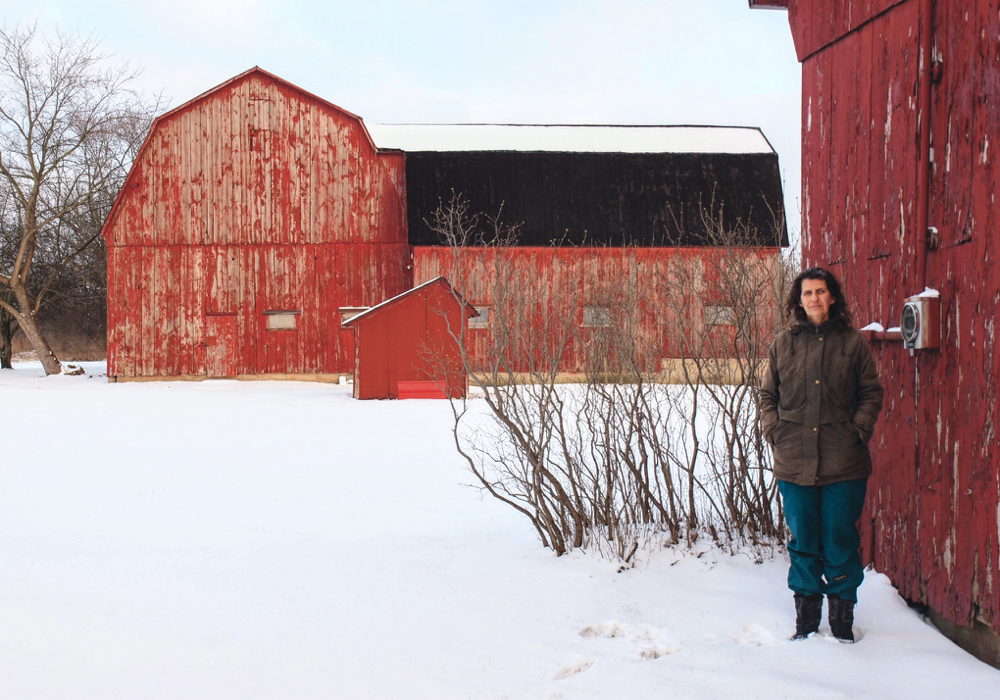

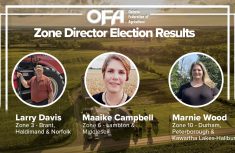
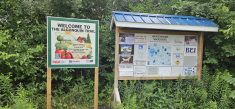
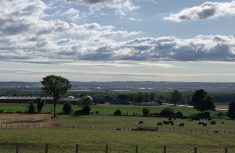
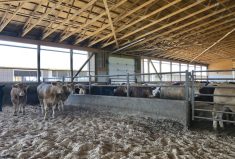
![Pictured from left to right: Zone 6 Director Crispin Colvin, Zone 14 Director Vanessa Renaud, Zone 9 Director Mark Reusser, Mary Brander, Bobby Robinson, Kyla Lewis, and Alaina MacDonald at the OFA annual general meeting in Toronto on Nov. 26, 2024. [Not pictured: Kaylee Wells].](https://static.farmtario.com/wp-content/uploads/2024/11/26215233/7937BC92-CFBB-47F5-A147-920943E02059-235x132.jpeg)
